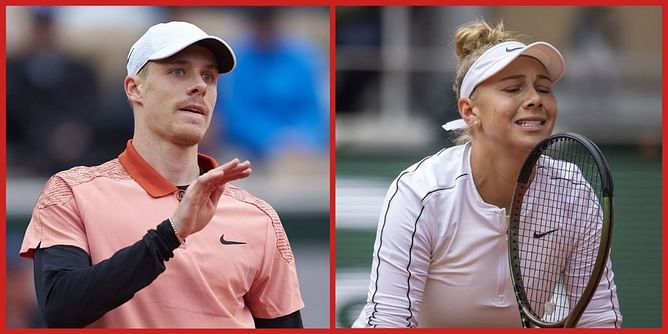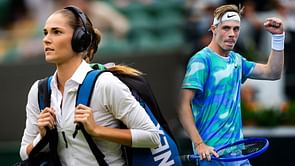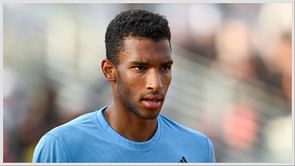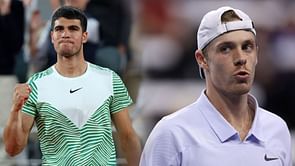Personal Information
| Full Name | Denis Shapovalov |
| Date of Birth | April 15, 1999 |
| Age | 26 Years |
| Nationality | Canadian |
| Birth Place | Tel Aviv-Yafo, Israel |
| Height | 1.83 m (6 ft) |
| Weight | 75 kg |
| Role | Left-handed aggressive baseliner (one-handed backhand) |
| Networth | $13 Million |
| Rank | 1560 |
| Coach | Peter Polansky Mikhail Youzhny |
Denis Shapovalov: A Brief Biography
Denis Shapovalov is a Canadian tennis player who is considered the future of the sport. His thrilling brand of tennis has attraction attention from all over the world, and many believe he has the talent to become World No. 1 some day.
Shapovalov, along with Milos Raonic and Eugenie Bouchard, has put Canadian tennis on the global map in a way that it never was before. His early success and unique style of play have made him a national icon already.
Best finish at each of the four Grand Slams:
Australian Open: 2nd Round (2018)
French Open: 2nd Round (2018)
Wimbledon: 2nd Round (2018)
US Open: 4th Round (2017)
Highest Ranking: No. 23
Style of play
Shapovalov's game is based on pure attack. The Canadian never wastes any time in trying to take control of a point, and employs a high-risk-high-reward strategy that is rarely seen in the modern game.
Shapovalov has a stock lefty sliding serve that swerves away rapidly from the right-hander's backhand, but he also has a flat serve that can skid through with pace. His forehand is mostly hit flat and hard, as is his backhand.
Shapovalov is comfortable in the forecourt and frequently finishes points with volleys. He also uses the slice liberally when he is put on the defensive.
Strengths and weaknesses
Shapovalov does a lot of things very well, and it's hard to pinpoint any one area as his biggest strength.
His forehand and backhand can be equally devastating; he is often described as a player two forehands. His backhand passing shots in particular are very effective, as he can get them to dip low and with speed.
Shapovalov's first serve is a weapon, and he uses his natural lefty angle to good effect. The second serve can be a little unreliable at times though; he goes for a lot on it, which can lead to double faults.
Shapovalov moves around the court at a decent clip, and has soft hands at the net too. However, his defense can land him in trouble, as he tries to hit winners even when pushed far behind the baseline.
Shapovalov's biggest liabilities are his impatience and occasionally ill-advised shot selection. His eagerness to attack can sometimes border on the reckless, and a majority of his losses come about because of his unforced errors.
Personal life
Shapovalov was born in Tel Aviv, to parents of Russian origin. The family moved to Vaughan, Canada, in the year 2000, and Shapovalov today has both Canadian and Israeli citizenship.
He first started playing tennis at the age of five, and was coached by his mother Tessa in the early years. As a junior Shapovalov was very successful, winning the Wimbledon title in 2016 (where he defeated Alex de Minaur in the final).
Shapovalov's no-holds-barred brand of attacking tennis is seen as a breath of fresh air in the modern era of baseline consistency. He frequently makes the spectators gasp with his unorthodox winners that seem to come out of nowhere, and has proven to be a tough out for all the top players already.
His results will likely always be hot-or-cold; he can go on a winning streak at any time, and also lose to unheralded players without warning. In that respect, he can be said to be very similar in style and temperament to Petra Kvitova.
Shapovalov has shown already in his short career that he can be strong-willed when he needs to, and produce big shots at the most important moments. Whether he can do that consistently in the future is up for debate, but what is certain is that he will continue to enthrall the tennis world with his thrill-a-minute tennis.
.
Social media presence:
Denis Shapovalov Instagram: @denis.shapovalov
Denis Shapovalov Twitter: @denis_shapo




